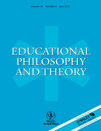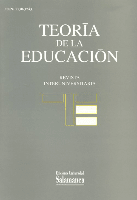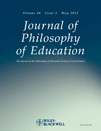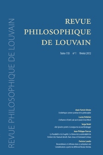
Educational Philosophy and Theory
Scope & Guideline
Charting New Territories in Educational Thought
Introduction
Aims and Scopes
- Philosophical Inquiry in Education:
The journal emphasizes the importance of philosophical perspectives in understanding educational practices and policies, drawing from various philosophical traditions including Western and Eastern thought. - Critical Pedagogy and Social Justice:
A core focus is on critical pedagogy, exploring themes of equity, inclusion, and social justice within educational contexts, particularly in relation to marginalized communities. - Interdisciplinary Approaches:
The journal encourages interdisciplinary research that combines insights from education, sociology, philosophy, and cultural studies, fostering a rich dialogue across fields. - Global Perspectives on Education:
It highlights educational issues from a global perspective, addressing the implications of globalization and transnationalism on education systems and practices. - Ethics and Educational Practice:
The journal places a strong emphasis on the ethical dimensions of education, examining how ethical considerations shape educational practices and policies. - Innovative Educational Practices:
Research on innovative pedagogical practices and their philosophical underpinnings is a significant area of interest, especially in the context of technological advancements.
Trending and Emerging
- Digital and Postdigital Education:
There is a growing focus on the impact of digital technologies on education, including discussions around AI in learning environments and the implications of postdigital realities. - Ecopedagogy and Environmental Education:
Emerging themes in ecopedagogy highlight the integration of environmental issues in educational discourse, emphasizing sustainability and ecological awareness within pedagogy. - Decolonization and Indigenization:
A significant trend is the exploration of decolonization and indigenization in education, addressing historical injustices and integrating indigenous knowledge systems. - Critical Race Theory and Anti-Racism:
The journal is increasingly publishing work centered on critical race theory and anti-racist education, reflecting broader societal movements for racial justice and equity. - Global Citizenship Education:
There is an upward trend in discussions around global citizenship education, focusing on preparing learners to engage with complex global issues and fostering intercultural understanding. - Affect and Emotional Dimensions of Learning:
Emerging research emphasizes the role of affect and emotional experiences in education, exploring how these factors influence learning and teaching practices.
Declining or Waning
- Traditional Educational Theories:
There appears to be a decline in the emphasis on traditional educational theories such as behaviorism and constructivism, with a shift towards more contemporary and critical approaches. - Standardized Testing and Assessment:
Discussions around standardized testing and assessment practices have become less frequent, possibly due to the growing critique of such measures in favor of more holistic educational evaluations. - Teacher-Centric Approaches:
There has been a noticeable waning of papers focused on teacher-centric pedagogies, as the discourse shifts towards student agency, voice, and participatory education. - Historical Educational Analysis:
While historical analyses of educational practices were once prevalent, there is now a reduced focus on this area, with more emphasis on contemporary and future-oriented educational challenges. - National Education Models:
Research centered on specific national education models has decreased, as the journal increasingly embraces transnational and comparative perspectives.
Similar Journals

Teoria de la Educacion
Cultivating Knowledge Across Educational LandscapesTeoria de la Educacion is a leading academic journal published by EDICIONES UNIV SALAMANCA, specializing in the fields of Education and Philosophy. With an impactful history since its inception in 1986, the journal operates under an open-access model, ensuring that vital research reaches a broad audience without financial barriers. Based in Spain, this journal not only boasts high visibility with its Q1 rankings in both Education and Philosophy but also achieves notable standings in Scopus rankings, placing in the 96th percentile in Philosophy and the 80th in Education. The scope of the journal encompasses various educational theories, methodologies, and philosophical underpinnings that shape contemporary discourse, making it an invaluable resource for researchers, professionals, and students alike who seek to understand and innovate within these crucial disciplines. By bridging theory and practice, Teoria de la Educacion fosters critical dialogue and advances scholarly insights, solidifying its role as a keystone publication within the academic landscape.

JOURNAL OF DHARMA
Bridging Minds: Where Philosophy Meets SpiritualityWelcome to the JOURNAL OF DHARMA, a distinguished publication in the realms of Philosophy and Religious Studies, published by Dharmaram College, India. This journal has carved out a niche in academic scholarship, achieving notable rankings in Scopus—#374 in Religious Studies and #511 in Philosophy—demonstrating its relevance and contribution to the respective fields. With its scope encompassing a diverse range of topics from philosophical inquiry to religious discourse, the journal reflects a commitment to promoting critical dialogue and interdisciplinary research. Although it operates without an open-access model, the JOURNAL OF DHARMA invites contributions from researchers, professionals, and students keen on exploring the intricacies of human thought and spiritual practices. As it continues to evolve, the journal remains a key resource for those seeking to deepen their understanding of philosophical and religious inquiries from 2002 to 2024.

Power and Education
Bridging Theory and Practice for Educational EquityPower and Education, published by SAGE Publications Ltd, is an esteemed journal that explores the intricate relationship between power dynamics and educational practices. With its E-ISSN of 1757-7438, the journal provides an essential platform for scholars and practitioners in the fields of education, sociology, and political science. Since its inception in 2009, the journal has maintained a consistent focus on critical issues in education, aiming to illuminate how structures of power influence educational systems and outcomes. Recognized for its academic rigor, it ranks in the Q3 quartile for Education and Q2 for Sociology and Political Science as of 2023, underscoring its significance in these disciplines. Although the journal does not currently offer open access options, it remains a vital resource for researchers seeking to engage with contemporary debates and research. By bridging theory and practice, Power and Education plays a crucial role in advancing our understanding of the power dynamics that shape educational landscapes, making it a must-read for those committed to fostering equitable educational practices.

Kalagatos-Revista de Filosofia
Empowering Research and Reflection in the Philosophical RealmKalagatos-Revista de Filosofia is a distinguished academic journal published by UNIV ESTADUAL CEARA-UECE, focusing on a broad spectrum of philosophical inquiries and scholarly discussions. With an ISSN of 1808-107X and an E-ISSN of 1984-9206, this Open Access journal has been dedicated to disseminating high-quality research and fostering critical thought in the field of philosophy since its inception in 2004. Positioned as a vital resource for researchers, professionals, and students alike, Kalagatos encourages dialogues that traverse traditional boundaries in philosophical discourse. With its commitment to accessibility and quality, the journal plays a pivotal role in contributing to the philosophical landscape, making knowledge available to a global audience. The journal seeks to publish original research articles, reviews, and essays that address contemporary and historical philosophical challenges, nurturing a vibrant academic community engaged in meaningful exploration and reflection.

JOURNAL OF PHILOSOPHY OF EDUCATION
Advancing Educational Discourse Through Philosophy.JOURNAL OF PHILOSOPHY OF EDUCATION, published by Oxford University Press, serves as a premier platform for interdisciplinary research at the intersection of education, history, and philosophy. Established in 1967, this journal has consistently contributed to the academic discourse by publishing insightful articles that challenge conventional thinking and inspire innovative pedagogical practices. With a distinguished ranking in the top quartiles of History and Philosophy and a respectable Q3 position in Education, it occupies a significant niche in the scholarly community. The journal's high Scopus rankings signify its impact, being placed in the 94th percentile for History and the 86th percentile for Philosophy. It welcomes contributions that explore theoretical frameworks, historical contexts, and practical implications of philosophical inquiries into education. Although it does not currently offer Open Access options, the journal remains a vital resource for academics and practitioners seeking to deepen their understanding of educational philosophy. With contributions expected to continue until 2024, the JOURNAL OF PHILOSOPHY OF EDUCATION is poised to remain a crucial avenue for advancing educational thought and research.

REVUE PHILOSOPHIQUE DE LOUVAIN
Exploring the Depths of Philosophical ThoughtREVUE PHILOSOPHIQUE DE LOUVAIN is a distinguished academic journal dedicated to the exploration of philosophical discourse and thought, published by PEETERS in Belgium. With an ISSN of 0035-3841 and E-ISSN 1783-1768, this journal has been a significant contributor to the field of philosophy since its inception in 1973. Although it has been classified in Q4 in the 2023 Philosophy category with a Scopus rank of 488 out of 762, the journal has established a reputation for fostering rigorous dialogue and covering a diverse array of philosophical topics through comprehensive articles and critical essays. Despite a temporary discontinuation in Scopus coverage from 2019 to 2021, REVUE PHILOSOPHIQUE DE LOUVAIN remains a significant platform for scholars, professionals, and students looking to engage deeply with contemporary philosophical issues. The journal's commitment to philosophical inquiry is complemented by its accessible publication model, although it does not currently offer open access options. For those based in or visiting Leuven, Belgium, the journal's office is located at BONDGENOTENLAAN 153, B-3000 LEUVEN, BELGIUM, a hub of intellectual engagement in the heart of Europe.

Paideusis-The Journal of the Canadian Philosophy of Education Society
Exploring New Paradigms in EducationPaideusis - The Journal of the Canadian Philosophy of Education Society serves as a vital platform for scholarly discussion and inquiry within the field of philosophy of education. Published by the Canadian Philosophy of Education Society (CPES) and embracing an Open Access model since 1987, this journal fosters an inclusive environment for researchers, educators, and students seeking to engage with contemporary educational theories and practices. With an emphasis on philosophical reflection and critical analysis, Paideusis invites contributions that challenge and extend our understanding of educational paradigms, making it a crucial resource for those committed to advancing discourse in education. The journal not only aims to promote intellectual engagement but also to cultivate a community where new ideas can flourish, ultimately shaping the future of educational thought and practice.

JOURNAL OF LITERACY RESEARCH
Bridging gaps in literacy knowledge and practice.JOURNAL OF LITERACY RESEARCH is a leading scholarly journal published by SAGE Publications Inc., dedicated to advancing the field of literacy studies through rigorous research and critical analysis. With an impact factor reflecting its high-quality contributions, this journal has achieved Q1 rankings in both Education and Linguistics and Language, positioning it among the top-tier publications in these fields. The journal has a comprehensive scope that includes various aspects of literacy research, bridging theoretical frameworks and practical applications. Researchers, educators, and students will find valuable insights in its articles, addressing critical issues from emergent literacy to adult education in diverse contexts. Available as an open access resource, the JOURNAL OF LITERACY RESEARCH ensures that cutting-edge research is accessible to a global audience, fostering an inclusive environment for disseminating knowledge and supporting literacy initiatives worldwide. For more information, visit the journal's page at [SAGE Publications](https://journals.sagepub.com/home/jlr).

EDUCATIONAL THEORY
Shaping the Future of Education with Rigorous ResearchEDUCATIONAL THEORY is a prestigious journal published by Wiley, focused on advancing the field of education through critical and insightful research. With an ISSN of 0013-2004 and E-ISSN 1741-5446, this journal has been a cornerstone of educational scholarship since its inception in 1951. Positioned in the second quartile (Q2) of the Education category and ranked #747 out of 1543 in Social Sciences - Education according to Scopus, it reflects a commitment to high-quality, peer-reviewed contributions that explore theoretical frameworks, methodologies, and contemporary issues in education. While not open access, it provides access options for educational institutions and researchers, facilitating a wide dissemination of knowledge. Covering converged years until 2024, EDUCATIONAL THEORY aims to engage researchers, professionals, and students alike, fostering a dialogue that enhances understanding and practice in educational theory.

STUDIES IN PHILOSOPHY AND EDUCATION
Bridging Philosophy and Pedagogy for Tomorrow's ScholarsSTUDIES IN PHILOSOPHY AND EDUCATION, a reputable journal published by Springer, is nestled in the dynamic intersection of philosophical inquiry and educational theory. With an ISSN of 0039-3746 and an E-ISSN of 1573-191X, this journal has been a significant platform for scholarly discourse since its inception in 1960. Located in the Netherlands, its impressive standing is reflected in its 2023 Scopus rankings, positioned in the Q1 category for Philosophy and Q2 in Education, alongside a commendable 90th percentile in the field of Arts and Humanities. Dedicated to fostering innovative thought and contributing to the evolving landscape of education and philosophy, the journal encourages submissions that explore diverse theoretical frameworks and practical applications. Although not an open-access publication, it remains an essential resource for academics, educators, and researchers aiming to deepen their understanding of the philosophical underpinnings of education. Engage with cutting-edge research and critical analyses that shape the future of educational practices and philosophical thought.